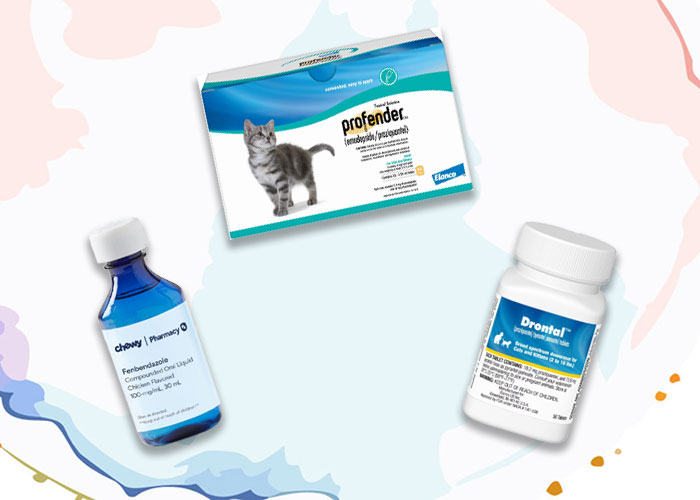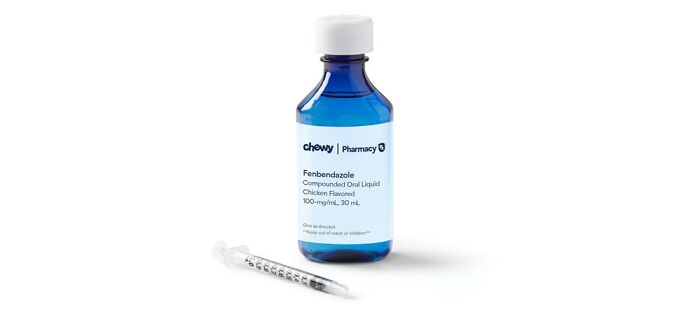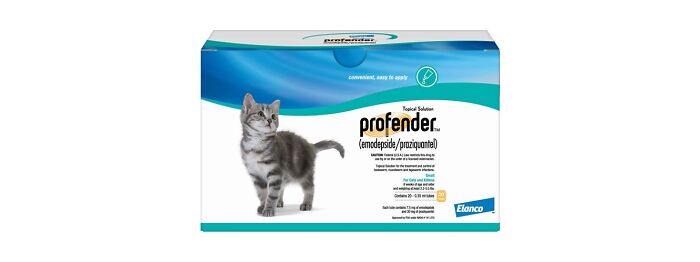Our Community Picks Best Overall: Drontal $221.99 Runner-Up: Fenbendazole Oil (Panacur) $51.75 Also Great: Droncit $24.95 Note: All prices and deals listed are accurate as of the time of publishing. Please check the provided links for the most current pricing.
Best Dewormers for Kittens
You’ll want to provide a broad-spectrum option for your kitten, and lots are available over the counter to treat the most common intestinal parasites. Make sure you choose one that is safe for kittens and appropriate for your kitty’s age and weight. Many have restrictions, such as only being suitable for those over two weeks old or those weighing over one kilogram. Vet Recommends: We recommend using a Lixit Pill Popper as it makes administering tablets a much easier task. Note: To prevent the cat from ingesting the medicine when licking, apply a dewormer high on the back. If ingested, your feline friend may experience mild, short-lived symptoms like drooling, nausea, and vomiting. Usually, roundworms are an issue with young kittens. For that reason, it’s absolutely essential to have a product that can be accurately measured and administered orally. Common indicators include vomiting, diarrhea, bloody stool, weight loss, abdominal bloating, flatulence, bad breath, visible worms in the stool or vomit, a scruffy coat, and lethargy. If you notice any of these symptoms, it’s best to take your cat to the vet for a check-up and appropriate treatment.
Common Feline Worms
Tapeworms. Tapeworms often accompany flea infestations and are more commonly found in those who consume raw meat. They can cause tapeworm segments to appear around the anus, which resembles grains of rice that are stuck to the fur. Roundworms. Many kittens carry a significant load of roundworms inherited from their mother. The common signs of roundworm infestation include diarrhea and an enlarged, bloated abdomen. Hookworms. Hookworms aren’t very common. They are frequently associated with bleeding in the gastrointestinal tract, which can be extremely severe in some cases. As a result, our feline friends may exhibit symptoms of anemia, weakness, and general malaise. Whipworms. Identifying whipworms can be challenging as some infected pets may test negative in their stool samples. This is because the eggs aren’t consistently shed. Symptoms vary but include loose and watery bowel movements, unexplained weight loss, and persistent fatigue.
Are Natural Dewormers for Cats an Option?
More often than not, natural products aren’t compelling enough to eliminate parasite infestation completely. That’s why it’s essential to consult your vet and use deworming medication that has a proven track record, has been thoroughly researched, and is safe to use.
Can Indoor Cats Contract Worms?
It’s important to know that even if your cat is an indoor pet and doesn’t come into contact with other cats, you should still look into routinely worming them. This is because they can quickly become infected with parasites from the soil and dirt we bring into our homes on our shoes and from raw food.
How Often Should I Deworm My Cat?
It’s recommended that adult cats who venture outside be treated for worms every 3 to 6 months. On the other hand, indoor cats should be dewormed yearly. As for kittens, it’s best to deworm them every 3 weeks until they reach 12 weeks of age and then monthly until they get 6 months.
What if I See No Evidence of Worms?
It’s not uncommon for some cat owners to assume their pet is worm-free if they don’t see any worms in their cat’s stool. However, this isn’t a safe assumption to make. Many types of worms are microscopic and can’t be spotted by the naked eye. Furthermore, worms may not be shed in every stool your cat passes and could still dwell inside their intestine. Therefore, regularly treating your cat for worms is always a good idea, even if you don’t see evidence of them in their stool.
Is Year-Round Parasite Prevention Medicine Necessary for Cats?
Your feline friend can catch worms at any time of the year, although they are more common during the Spring and Summer months for those who enjoy hunting. Thanks to central heating, fleas are a year-round annoyance and a frequent source of tapeworms. If your cat is fed a raw diet, the worms can appear at any point throughout the year. Follow Bored Panda on Google News! Follow us on Flipboard.com/@boredpanda! Please use high-res photos without watermarks Ooops! Your image is too large, maximum file size is 8 MB.










